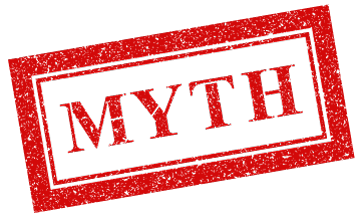Can You Overdose on Probiotics
Easy to follow recommendations for the correct probiotic dosing.
One of the most common questions I get from patients is, “Can I overdose on probiotics?” A simple internet search will give you a myriad of different answers to this question.
You see how confusing it can be trying to weed-out the truth. Luckily, the truth is a lot less complicated than we make it.
Can You Overdose On Probiotics?
Probably not. We have studies using whopping doses of probiotics with little to no side effects.
Does this mean that more is always better? Not necessarily. I like to teach my patients about ‘the minimal effective dose.’ This is the lowest effective dose for you. This makes taking probiotics easy and cost-effective.
Do Side Effects Indicate an Overdose?
Not at all. It can simply mean this is not the right type of probiotic for your gut. What most healthcare consumers (and sadly many doctors) don’t understand is that nearly every probiotic product can be classified as one of 3 categorial types of probiotics. Ideally, you want to try and incorporate all three into your probiotic program. There are 3 categories of probiotics that we want to incorporate:
- Lactobacillus & Bifidobacterium blends – A blend of strains that are mostly lactobacillus and bifidobacterium strains.
- Saccharomyces boulardii – Which contains one strain, a healthy fungus, Saccharomyces boulardii.
- Soil-Based Probiotics – A blend of bacillus strains.
Each category offers different support to overall gut health.
If a reaction occurs, this is not an overdose but rather the wrong fit. Meaning your gut does not respond well to a given categorical type of probiotic. It is that simple!
If you’ve had reactions to probiotics, try them one-at-a-time so you can easily assess which categorical type is causing the reaction. Then simply avoid that type as this indicates its not a good fit for your gut.
Don’t Mistake A Reaction for an Overdose: “The Die-Off Reaction”
You may experience a reaction while re-balancing is occurring. A few days of turbulence is OK. However, reactions lasting over a week indicate this particular probiotic is not a good fit for your gut.
Simply remove the probiotic that is not working for you, and continue with the categories of probiotics that you tolerate.
Reactions Can Occur Due to Poor Quality Probiotics
You don’t need to purchase the most expensive probiotic. But, you should be wary of a probiotic that is substantially cheaper than the rest. This usually indicates corners have been cut in quality.
Did you know:
- 43% of the probiotics assessed contained less than half the amount of probiotics listed on their labels LabDoor[1]
- In a study of 26 commercial probiotics assessed, none of the probiotics fully supported label claims, and some of them contained unacceptable microorganisms. The Journal Biotechnology & Biotechnological Equipment
- Regulations of probiotics are loose, so the safety and effectiveness of most probiotics gets to be decided by the manufacturer. Bioinformatics and Drug Discovery
The two most common problems with probiotics are:
1) not meeting label claims
2) containing potentially harmful organisms.
To avoid this risk, and to prevent unwanted reactions, look for brands that:
- Are free of all major allergens (often a reaction can occur to an allergen rather than to the probiotic itself)
- Are GMP Certified (Good Manufacturing Practices)
- Are validated for potency
Doing this will assure you that there is nothing unwanted in your probiotics.
Now that we know how to choose a quality probiotic, let’s take a quick look atwhy probiotics are the number one supplement that I recommend to patients.
Why Take Probiotics?
The health benefits of probiotic supplements have been well-established in a very large body of clinical research. We know from the research that probiotics are helpful for a wide range of health issues. These include:
- Digestive issues like IBS, IBD (Crohn’s and colitis), SIBO, leaky gut and more.
- Non-digestive issues like mood, cognition, sleep, hormonal balance, autoimmune conditions and more.
How is it possible for one type of supplement to have so many health benefits? This is because….
Probiotics Break This Destructive Cycle
An unhealthy balance of gut flora can lead to a poorly trained immune system and result in excessive inflammation. This inflammation can further damage the good bacteria in your intestinal tract and damage your gut lining. More inflammation and damage furthers the dysfunction, and so starts a self-feeding cycle.

Probiotics help to break this destructive cycle and can lead to a self-perpetuating cycle of healing and improvement.
Probiotics Improve Gut Health
Probiotics have been shown to positively affect digestive health in several ways:
- Increase the diversity, or health, of the living organisms in your digestive system [2].
- Fight pathogens (harmful bacteria and other bad bugs) and their toxins [3, 4, 5].
- Promote a more rapid recovery from imbalances in your gut microbiota [6].
- Promote a healthy immune system response in your gut [7, 8].
- Reduce gut inflammation (excessive inflammation is part of an overzealous immune response) [9].
- Encourage the growth of healthy bacteria in your gut [10].
- Reduce leaky gut aka damage to your gut lining [11, 12, 13].
Probiotics Improve Many Other Health Issues
A healthy gut leads to better overall health (I wrote an entire book, Healthy Gut, Health You, about this concept). Research also shows that probiotics can benefit a wide variety of health conditions.
We currently have high level scientific support to show that probiotics can benefit:
- IBS: Gas, bloating, diarrhea, constipation, abdominal pain
- IBD: Crohn’s and ulcerative colitis
- Mood: Depression and anxiety
- Gut microbiota imbalance: SIBO, H. pylori, candida/fungus, pathogens
- Leaky gut aka gut damage and permeability
Limited, but encouraging, scientific support for:
- Cognition
- Sleep
- Thyroid health
- Female hormones
- Autoimmune conditions
- Metabolism
- Blood pressure and cholesterol
- Brain fog
- Sleep
Ok, we’ve established that probiotics are good for your digestive health and your overall health. Let’s take a closer look at some myths and facts about taking probiotics.

Taking Probiotics Reduces the Body’s Production of Probiotics
This is just plain false. From clinical studies we know that taking probiotics can actually:
- Increase bacterial diversity, or health, of your bacterial community[14]
- Fight pathogens (harmful bugs) and their toxins
- Promote a more rapid recovery from imbalances in your gut organisms
- Promote a healthy immune response in your gut[15, 16]
- Reduce gut inflammation (remember excessive inflammation is part of an overzealous immune response)[17]
- Encourage the growth of healthier microbes in your gut[18]
- Reduce leaky gut aka damage to your gut lining.[19, 20, 21]
So we clearly see that taking probiotics actually helps balance our community of healthy bacteria.

Never take more than one probiotic at a time.
Maybe you have tried different probiotics without experiencing the results you were after. I see this all the time in my clinical practice. Patients often take only 1 type of probiotic and call it quits. Taking more than one probiotic at the same time has often been the major difference between minimal results and impressive results.
I have seen the best results when patients use Probiotic Triple Therapy.
This consists of the 3 most studied categories of probiotics, taken together to provide the best results:

You should rotate your probiotics.
Remember, there are 3 categorical types of probiotics. Using all three probiotics provides more support for your gut and appears more conducive to establishing balance in your gut.

Instead of jumping from product to product, find the probiotic(s) that works for you and stick with it until symptoms improve.
Once your symptoms have improved it’s safe to assume your gut microbiota (bacteria) have achieved balance. Then you can wean your probiotics to find the minimal effect dose.
Probiotic Supplements are Better than Probiotic Foods.
Probiotic foods like kimchi, tempeh, kefir and lacto-fermented sauerkraut are great and I encourage you to include them in your diet. If you already have a healthy gut or if you eat A LOT of probiotic foods, these foods might give you enough healthy bacteria to meet your needs. However if you’re not eating a lot of probiotic foods or if you have specific health issues, probiotic supplements will provide you with more CFUs (colony forming units).
As you will see, it is much easier to get effective doses of probiotics from supplements than it is from food.
This chart shows the probiotic content of common probiotic foods:
Bottom line: Eat probiotic rich foods, but for the best therapeutic effect, take probiotic supplements.

More is always better with probiotics.
Using probiotic supplements in addition to probiotic-rich foods provides us with much larger doses of these friendly bacteria. Does this mean that more is always better with probiotics? Not at all. We want to find the minimal effective dose.
This is friendly to your pocket book and your sanity. If you don’t know where to start, refer to my Probiotic Starter Guide for simple, yet effective instruction.
In Conclusion
Can you overdose on probiotics? The simple answer again, is probably not. But don’t waste your money and your sanity taking more and more probiotics, hoping for a different outcome. Find a high-quality brand that you can trust and incorporate Probiotic Triple Therapy that we discussed in this article.
Taking all 3 probiotics together may give your digestive system the nudge you have been looking for that mega-doses have not been able to fix.
Don’t waste your time overdosing on inefficient probiotics. With the right formulas used in combination, you can find an effective approach that works for you and your bank account.
Dr. Michael Ruscio is a DC, natural health provider, researcher, and clinician. He serves as an Adjunct Professor at the University of Bridgeport and has published numerous papers in scientific journals as well as the book Healthy Gut, Healthy You. He also founded the Ruscio Institute of Functional Health, where he helps patients with a wide range of GI conditions and serves as the Head of Research.References (click to expand)
[1] https://labdoor.com/rankings/probiotics
[2] Curr Alzheimer Res. 2018;15(12):1106-1113. doi: 10.2174/1389200219666180813144834.
[3] Eur J Pediatr. 2013 Oct;172(10):1321-6. doi: 10.1007/s00431-013-2041-4. Epub 2013 May 24.
[4] Scand J Infect Dis. 2006;38(6-7):479-81.
[5] Parasitol Res. 2011 Mar;108(3):541-5. doi: 10.1007/s00436-010-2095-4. Epub 2010 Oct 5.
[6] BMJ Open. 2014 Aug 25;4(8):e005047. doi: 10.1136/bmjopen-2014-005047.
[7] Microorganisms. 2018 Apr 25;6(2). pii: E35. doi: 10.3390/microorganisms6020035.
[8] EBioMedicine. 2016 Nov;13:190-200. doi: 10.1016/j.ebiom.2016.10.036. Epub 2016 Oct 26.
[9] Curr Alzheimer Res. 2018;15(12):1106-1113. doi: 10.2174/1389200219666180813144834.
[10] Microorganisms. 2018 Apr 25;6(2). pii: E35. doi: 10.3390/microorganisms6020035.
[11] Sci Rep. 2017 Jan 3;7:40128. doi: 10.1038/srep40128.
[12] Clin Infect Dis. 2014 Apr;58(8):1107-15. doi: 10.1093/cid/ciu065. Epub 2014 Feb 5.
[13] J Int Soc Sports Nutr. 2012 Sep 20;9(1):45. doi: 10.1186/1550-2783-9-45.
[14] Curr Alzheimer Res. 2018;15(12):1106-1113. doi: 10.2174/1389200219666180813144834.
[15] Microorganisms. 2018 Apr 25;6(2). pii: E35. doi: 10.3390/microorganisms6020035.
[16] EBioMedicine. 2016 Nov;13:190-200. doi: 10.1016/j.ebiom.2016.10.036. Epub 2016 Oct 26.
[17] Curr Alzheimer Res. 2018;15(12):1106-1113. doi: 10.2174/1389200219666180813144834.
[18] Microorganisms. 2018 Apr 25;6(2). pii: E35. doi: 10.3390/microorganisms6020035.
[19] Sci Rep. 2017 Jan 3;7:40128. doi: 10.1038/srep40128.
[20] Clin Infect Dis. 2014 Apr;58(8):1107-15. doi: 10.1093/cid/ciu065. Epub 2014 Feb 5.
[21] J Int Soc Sports Nutr. 2012 Sep 20;9(1):45. doi: 10.1186/1550-2783-9-45.


Discussion
I care about answering your questions and sharing my knowledge with you. Leave a comment or connect with me on social media asking any health question you may have and I just might incorporate it into our next listener questions podcast episode just for you!